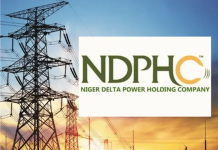With a persistent negative interest yield on fixed income securities assets, yields jumped further midweek amid economic uncertainty in Nigeria. The market continues to factor in inflation and interest rate rises when valuing assets.
However, the financial system’s high liquidity has remained a drag on yield repricing in the fixed income market. The Debt Management Office has been frontloading borrowing, generating N4.2 trillion in seven months while market opponents accuse it of financial restraint.
The actual return on debt instrument investment has remained vulnerable to changes in the consumer price index, but Broadstreet analysts believe the government does not need to pay a premium on risk-free naira assets offered to investors.
By profile, apart from Nigerian banks, pension fund administrators are key players as regulatory demand requires significant investment spending on government instruments. Foreign investors have been largely on the side due to negative interest rates, despite FX reform.
Fixed income market analysts however think that yield will be repriced in the second half of 2023 as investors await fresh catalysts amidst unsteady economic direction and conditions.
In the secondary market on Wednesday, the FGN bond faced sell pressures for the seventh consecutive session, as the average yield expanded by 10 basis points to 13.23%.
This comes at a distance to an annual inflation rate of 22.79% – the consumer price index reported for June has been noted to exclude the impacts of subsidy removal. The Central Bank of Nigeria has started repricing treasury bills at higher following a 25 basis points hike in the policy rate.
Treasury bill for 364 days was sold at 12.15% at its midweek auction. Market analysts said the raise is the beginning of what the debt market will experience as inflation and interest rates continue to weigh on naira assets.
Sell pressure was seen particularly at the belly (+30bps) of the curve, especially on the APR 2029 (+54bps), MAY 2029 (+47bps), and NOV 2029 (+44bps) bonds, fixed income traders at CardinalStone Securities Limited told investors in an email update.
The 10-year FGN bonds yielded around 13.22%, while the 20-year and 30-year bonds held steady at 14.60% and 14.96%, respectively.
Elsewhere, FGN Eurobonds appreciated across all tracked maturities, reflecting sustained bearish sentiment, as the average secondary market yield increased by 24 basis points to 10.31%, traders said in their updates.
Across the benchmark curve, Cordros Capital Limited said the average yield was flat at the short end but expanded at the mid (+22bps) and long (+1bp) segment.













